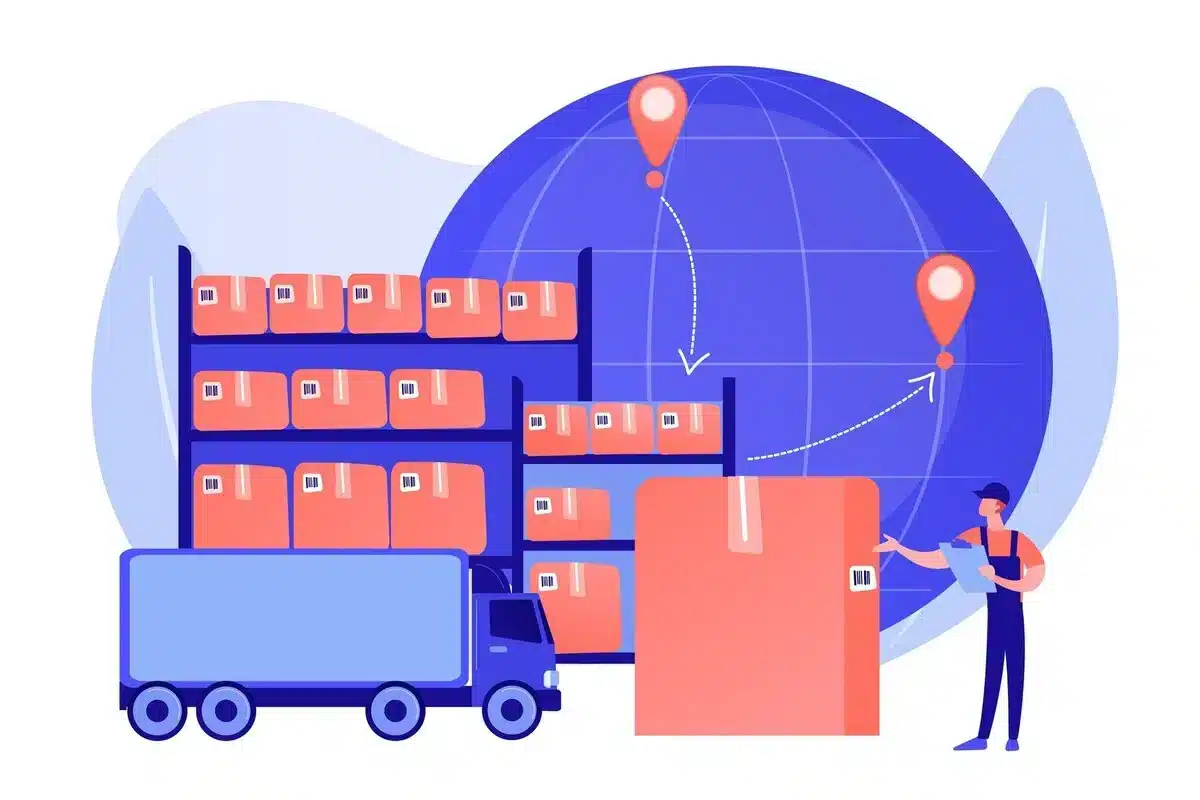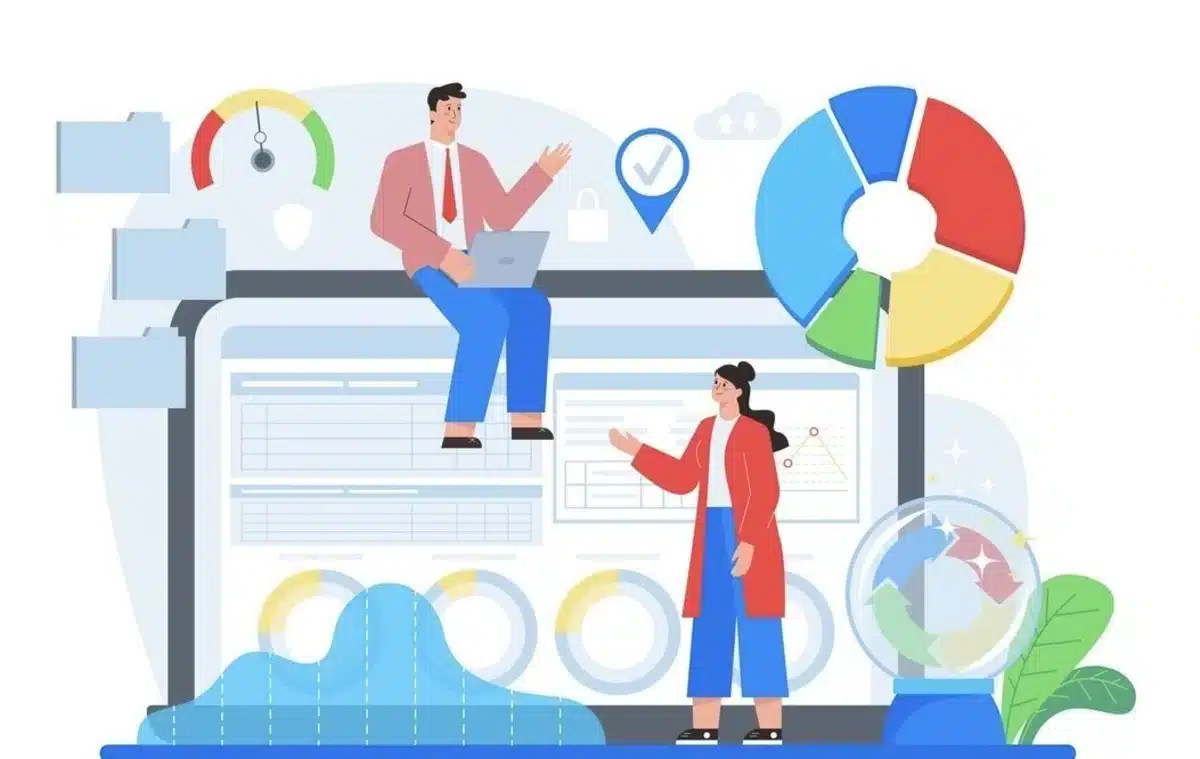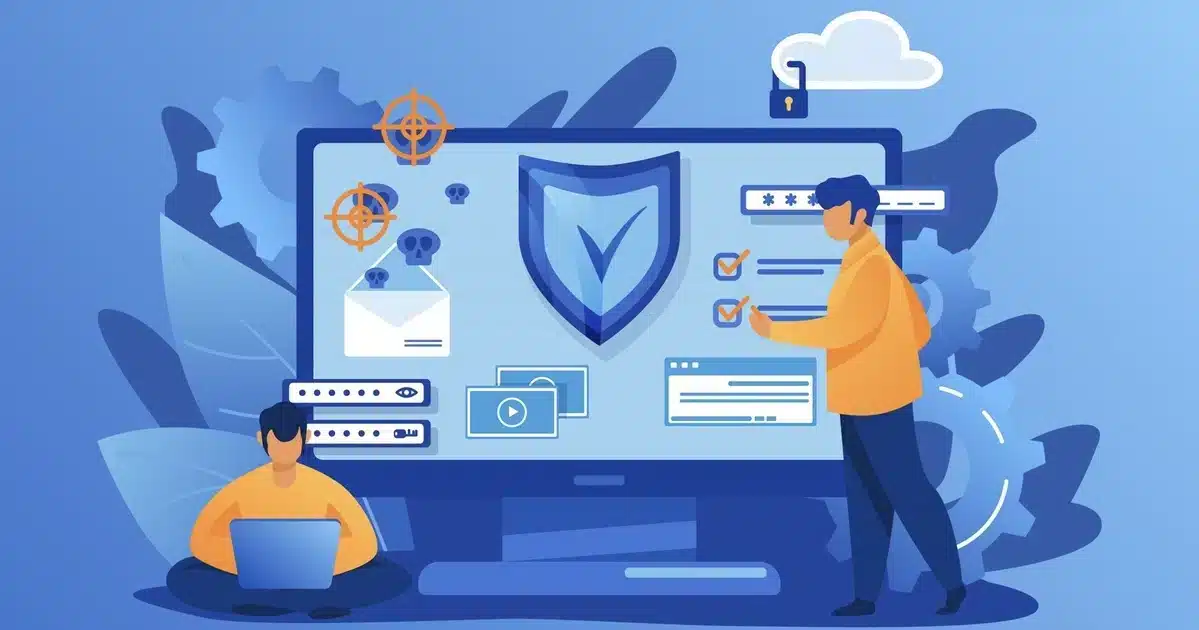What is an Ecommerce Coordinator? Exploring Digital Heroes

In today’s digital age, where the convenience of online shopping has become a fundamental part of our lifestyle, an eCommerce Coordinator stands out as crucial for businesses aiming to excel in the online marketplace.
This vital position, the eCommerce Coordinator, serves as the central hub connecting various departments to ensure the smooth operation of the online store, encompassing everything from inventory management to enhancing customer satisfaction.
Beyond merely managing an online presence, an eCommerce Coordinator is tasked with creating an engaging online shopping experience that captivates consumers, boosts sales, and solidifies brand loyalty.
In this blog, we will dive into the comprehensive responsibilities and disclose the skills and queries on What is an eCommerce Coordinator, highlighting the essential skills, the challenges encountered, and their significant contribution to the prosperity of an eCommerce platform.
Discover with us the complex role of the eCommerce Coordinator and its growing importance in digital commerce.
Table of Contents
What is an Ecommerce Coordinator?

An eCommerce Coordinator is in charge of a company’s online store. They ensure everything on the website works well, like updating products, tracking and monitoring inventory, and making shopping easy and fun for customers.
They work with other teams like marketing and sales to find ways to sell more online and make sure customers like what they see.
They also look at data to see what’s working and what could be better, and they help with online ads and social media to get more people to visit the site. In short, they ensure the online store does its best to attract customers and sell products.
What are the Roles of an Ecommerce Coordinator?
An eCommerce Coordinator is responsible for a variety of critical duties to keep an online shop running smoothly, such as:
1. Product Management

Managing product details in an online store is crucial for the coordinators. This involves updating the site with new items or changing existing information and ensuring every product is presented attractively and straightforwardly.
They craft engaging product narratives that give customers all the necessary details to make informed decisions.
They select and manage high-quality imagery and video content to visually captivate potential buyers, showcasing products in their best light.
Price management is also crucial; they monitor and tweak prices to stay competitive and align with stock levels and market dynamics.
Launching new products is a collaborative effort, requiring coordination with suppliers and the internal team to ensure a smooth introduction on the site.
This aspect of their job is vital because it directly influences how easily customers can find and feel persuaded to purchase.
It demands a sharp eye for detail, a solid understanding of customer preferences, and an ability to keep pace with evolving market trends.
2. Inventory Management

In inventory management, an eCommerce Coordinator ensures the seamless operation of the online store’s stock levels.
This task involves a thorough approach to tracking the quantity of products available, forecasting demand to avoid potential shortages or excesses, and cooperating with suppliers or internal departments to restock inventory on time.
The coordinator employs sophisticated inventory management systems to monitor stock movements accurately, analyze sales patterns, and predict future inventory needs.
This proactive management helps maintain an optimal inventory level that aligns with customer demand while minimizing storage costs and maximizing sales opportunities.
Furthermore, the coordinator collaborates closely with the purchasing and warehousing teams to streamline the supply chain process, ensuring that new stock is integrated efficiently into the warehouse and made available for sale without delay.
This comprehensive approach to inventory management is crucial for maintaining customer satisfaction by ensuring that popular items are always in stock while keeping a tight rein on inventory costs.
3. Order Processing

Within the scope of handling order procedures, the role of an eCommerce Coordinator is crucial for guaranteeing a smooth and practical experience for customers from start to finish.
This task goes beyond simply watching over the initial order entries; it involves a detailed oversight of every stage in the fulfillment cycle.
Collaborating with warehouse and delivery teams is essential to ensure that orders are correctly selected, packaged, and dispatched promptly.
Moreover, the coordinator is tasked with maintaining an up-to-date inventory system, reflecting current stock levels to facilitate timely replenishment and reduce potential hold-ups.
They also play a crucial role in managing secure payment processes and implementing online transaction protocols to protect customer data.
Beyond processing, the coordinator tracks shipments, keeping customers informed with timely updates and tracking details to improve the overall post-order experience. In situations involving returns or exchanges, they manage the process efficiently, aiming to preserve customer satisfaction and encourage future purchases.
By adeptly managing these order-related tasks, the coordinator significantly enhances the operational efficiency of the online platform, leading to greater customer satisfaction and loyalty.
4. Website Management

In managing the website, the eCommerce Coordinator has several essential tasks to ensure everything runs smoothly.
One key responsibility is checking the technical side of the site regularly, like making sure links work and there are no technical glitches.
They also focus on keeping customer data safe by working with IT teams to set up robust security measures.
Staying updated on new technology trends is also crucial so they can add helpful features to the website, like chatbots for customer service or personalized product recommendations.
Additionally, they keep an eye on how well the website is doing by looking at how many people buy stuff versus just looking around and then figuring out ways to make it even better.
Overall, their job is to ensure the website is easy to use and safe and keeps improving to give customers the best experience possible.
5. Customer Service

Besides managing the website, the coordinators also handle customer service duties. They help customers with questions or issues through emails, live chat, or social media.
They’re the go-to person for tracking orders, finding product details, or sorting out problems like late deliveries or damaged items.
Moreover, they listen to what customers say about their shopping experience and what products they like. This helps them figure out how to make things better. They also monitor reviews and ratings on the website and other places online.
If someone leaves a bad review, they try to fix the problem and show that they care about making customers happy.
The eCommerce Coordinator might also set up programs to reward loyal customers or encourage them to return.
By looking at what customers buy and how often, they can offer special deals or discounts to keep them returning for more.
Overall, the coordinators do more than answer questions. They ensure customers are happy, fix problems, and find ways to keep them returning for more shopping.
6. Digital Marketing and Promotion

In digital marketing and promotion, the eCommerce Coordinator has a significant role. They create and run marketing campaigns on social media, email, and ads to get more people to visit the online store and buy things.
They also monitor how well these campaigns are doing by looking at how many people click on ads or buy products because of them.
They make personalized offers using data about what customers like and how they shop to get more people to buy.
Moreover, they collaborate with influencers or other partners to help spread the word about the store to new audiences.
They also keep up with new trends and technology to find better ways to market the store and attract more people to shop.
7. Analytics and Reporting

Analytics and reporting play a significant role in understanding and improving how well the online store is doing.
They gather information from different places like website visits, sales numbers, and what customers say. Looking at this info, they figure out what’s going well and needs improvement.
Moreover, the eCommerce Coordinator makes reports to share this info with the team. These reports show how many people visit the website, how much stuff gets sold, and if customers are happy.
This helps everyone know what’s going on and make intelligent decisions. Furthermore, the coordinator tries out different ideas, like changing how the website looks or how things are advertised.
They work closely with other teams to ensure everyone is on the same page and use their learning to improve things.
Additionally, they keep up with new tools and ways to look at data better. This helps them find necessary info and improve the online store for customers.
8. Compliance and Security

Regarding compliance and security, these Coordinators are vital in ensuring the online store operates within legal boundaries while safeguarding customer data from cyber threats.
Their responsibilities include staying updated on laws and regulations relevant to eCommerce and collaborating with legal teams to ensure compliance.
Moreover, the eCommerce Coordinator implements security measures such as encryption and firewalls to protect customer information from hackers.
They also oversee secure payment processing systems and educate employees on security best practices.
Additionally, the coordinator observes emerging threats and continuously updates security protocols to mitigate risks. They focus on maintaining compliance and securing customer data in an ever-evolving digital landscape.
9. Vendor Management

This Coordinator has essential tasks to ensure everything runs smoothly when managing vendors. They search for new vendors, negotiate contracts, and check their reliability.
They also keep in touch with current vendors to ensure products are delivered on time and solve any issues.
Moreover, the coordinator monitors how healthy vendors are doing, like if they deliver high-quality products on time.
They also work with vendors to plan inventory and decide which products to sell. The eCommerce Coordinator might also collaborate with vendors for joint marketing efforts or special promotions to attract more customers.
They also work with marketing teams to create campaigns that showcase these products and drive sales.
10. Continuous Improvement

In continuous improvement, the eCommerce Coordinator focuses on finding ways to make the online store better.
They regularly check how things are going, like website performance and customer feedback, to see where improvements can be made.
Moreover, the coordinator works with different teams to implement these improvements. This might mean updating the website, improving marketing strategies, or smoothing the order process.
Furthermore, they keep an eye on what’s new in eCommerce to stay ahead. They also encourage everyone to share ideas and work together to improve things.
Additionally, the coordinator tracks how these improvements work by looking at how many people buy and making changes if needed.
Skills to Become an Ecommerce Coordinator
Except for the query on “What is an eCommerce Coordinator?”. There are also various doubts and queries regarding the skills required to become one.
Below are a distinct set of skills which can solve your query:
- Digital Marketing Mastery: Proficiency in digital marketing essentials like SEO, SEM, email marketing, and social media advertising is crucial for effectively promoting products and engaging customers on eCommerce platforms.
- Data Analysis Prowess: The ability to analyze data about website traffic, user behavior, and sales metrics is indispensable. This skill empowers the coordinators to make informed decisions and optimize the performance of online sales channels.
- Technical Acumen: Familiarity with eCommerce platforms, content management systems, and web analytics tools is essential for efficiently managing and enhancing eCommerce websites.
- Project Management Expertise: Strong project management skills are essential for adapting various tasks and initiatives within eCommerce operations, ensuring timely execution and resource optimization.
- Clear Communication: Effective communication is critical for collaborating with diverse teams, vendors, and customers. Coordinators must convey information clearly to align goals and foster effective teamwork.
- Problem-Solving Agility: Quick identification and resolution of issues are critical for maintaining seamless eCommerce operations and addressing challenges proactively.
- Customer-Centric Mindset: Prioritizing customer satisfaction and delivering exceptional service are paramount for building loyalty and driving repeat business on eCommerce platforms.
- Analytical Thinking: Strong analytical skills enable coordinators to derive actionable insights from data, facilitating continuous improvement and optimization of eCommerce strategies.
- Adaptability and Flexibility: Given the dynamic nature of the eCommerce landscape, adaptability and flexibility are essential for responding to industry trends and changes effectively.
- Attention to Detail: Thorough attention to detail ensures accuracy in tasks like product listings, inventory management, and order processing, safeguarding the credibility of the eCommerce platform.
By working on these unique skills, individuals can position themselves as proficient eCommerce Coordinators, contributing to the growth and success of online businesses.
Advantages of Ecommerce Coordinator
- Operational Efficiency: It is essential to ensure the seamless functioning of online sales platforms. They carefully manage inventory, supervise order fulfillment, and streamline processes, resulting in swift transactions and heightened customer satisfaction.
- Enhanced User Experience: With a keen focus on user interface and experience, the eCommerce Coordinator optimizes the online platform for easy navigation, clear product descriptions, and hassle-free checkout. This concerted effort fosters increased engagement and cultivate customer loyalty.
- Digital Marketing Proficiency: Using skills in digital marketing, the eCommerce Coordinator devises and executes strategies spanning SEO, SEM, email campaigns, and social media advertising. These efforts drive traffic to the eCommerce platform, amplifying sales and brand visibility.
- Data-driven decision-making: The eCommerce Coordinator gains invaluable insights into consumer behaviour and market trends through thorough website analytics and sales metrics analysis. Armed with this data, they make informed decisions to refine product offerings and marketing tactics.
- Efficient Inventory Management: Effective inventory management is an asset of the eCommerce Coordinator. They monitor stock levels, forecast demand, and optimize replenishment strategies to prevent stockouts and minimize excess inventory, optimizing resource utilization.
- Customer Relationship Cultivation: Engaging with customers, addressing inquiries, and resolving issues are integral to the eCommerce Coordinator’s role. By increasing meaningful interactions and soliciting feedback, they nurture strong customer relationships, driving loyalty and advocacy.
- Adaptability to Emerging Trends: Keeping up with the latest eCommerce trends and technological advancements, the Coordinators ensure the platform remains relevant and competitive. They effectively integrate innovations such as mobile optimization and immersive technologies to enrich the user experience.
- Collaborative Synergy: Effective collaboration with cross-functional teams is a hallmark of the eCommerce Coordinator. By aligning with marketing, sales, IT, and logistics departments, they synchronize efforts to achieve overarching business objectives and drive innovation.
- Facilitation of Scalability: The coordinators lay the groundwork for scalable growth with strategic foresight and thorough planning. They identify expansion opportunities, explore new markets, and diversify product offerings, catalyzing sustained business development.
- Risk Mitigation and Compliance: The eCommerce Coordinator must manage risks effectively and comply with legal guidelines. They implement robust security measures, prevent fraud, and ensure compliance with data protection rules, all of which help maintain the online platform’s integrity.
In summary, the coordinators carry out broad responsibilities, including operational optimization, customer focus, strategic foresight, and risk management, all contributing to the online sales ecosystem’s success and durability.
Conclusion
In summary, the role of an eCommerce Coordinator is fundamental in navigating the complexities of online commerce.
Acting as the central figure in coordinating various aspects of an eCommerce enterprise, these professionals ensure smooth operations, elevate user satisfaction and propel business growth through strategic endeavors.
The question “What is an Ecommerce Coordinator?” highlights the complexity and significance of this critical position.
As online shopping continues to thrive, the invaluable expertise and dedication of the coordinators remain essential in shaping the success of modern businesses in the digital realm.
FAQs
What eCommerce platforms are commonly used by eCommerce Coordinators?
Popular eCommerce platforms the coordinators use include Shopify, WooCommerce, Magento, BigCommerce, and Salesforce Commerce Cloud. Each platform offers unique features tailored to different business needs.
How does an eCommerce Coordinator contribute to business growth?
By implementing effective eCommerce strategies, the coordinator can drive traffic to the online store, improve conversion rates, enhance customer satisfaction, and ultimately increase revenue for the business.
What are the challenges faced by the Coordinators?
Some common challenges include staying updated with evolving technology and consumer behavior, managing inventory effectively, dealing with cybersecurity threats, maintaining brand consistency across various online channels, and competing in a saturated market.
How can a coordinator improve website performance?
An eCommerce coordinator can enhance website performance by optimizing site speed, improving navigation and user interface, implementing SEO best practices, offering personalized recommendations, providing seamless checkout experiences, and leveraging data analytics to make data-driven decisions.
What is the difference between a Coordinator and an eCommerce Manager?
While both roles involve managing online retail operations, a Coordinator typically focuses on executing day-to-day tasks such as product management and promotional activities. In contrast, an eCommerce Manager often oversees the overall eCommerce strategy and may have broader responsibilities, including team management and budget allocation.




